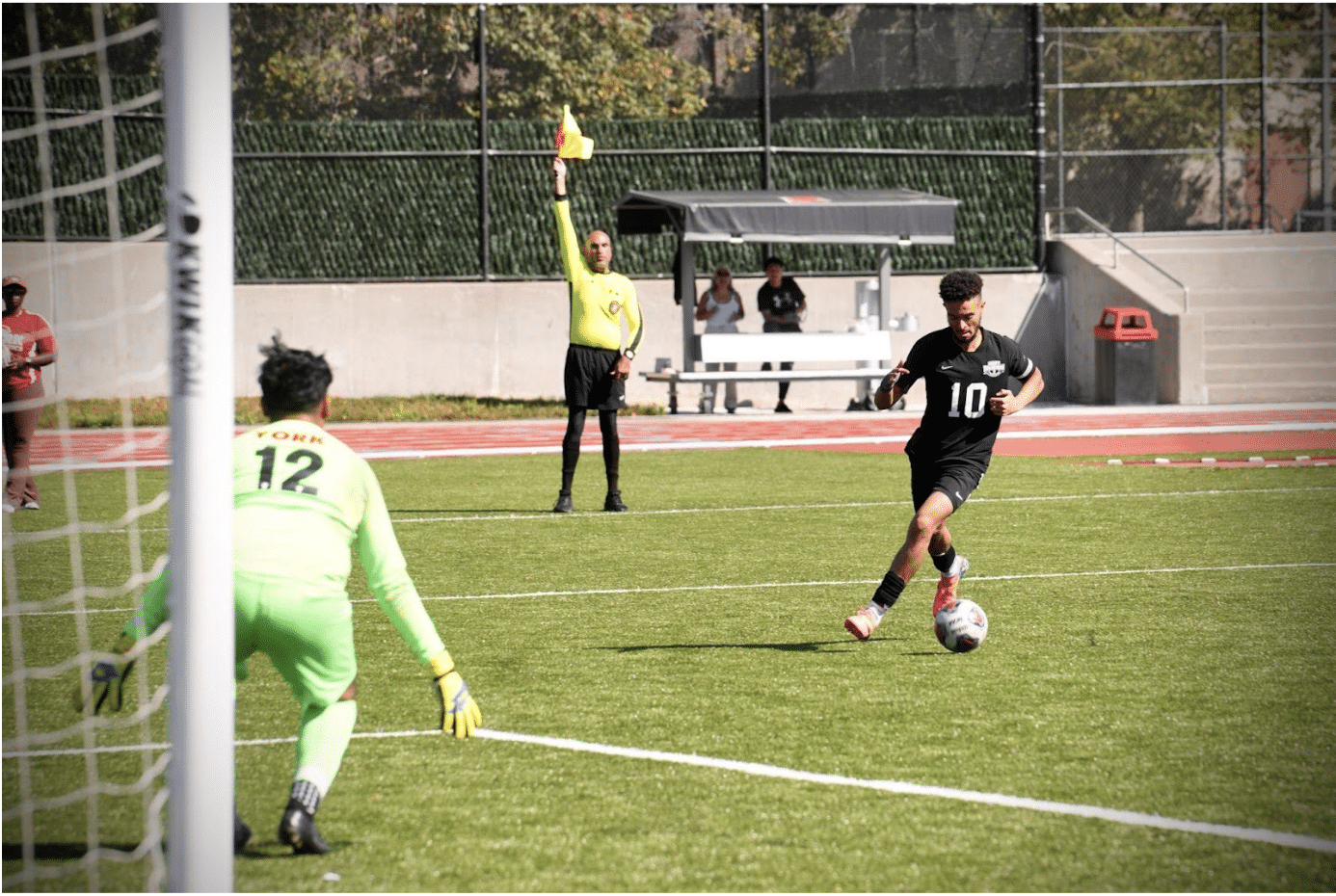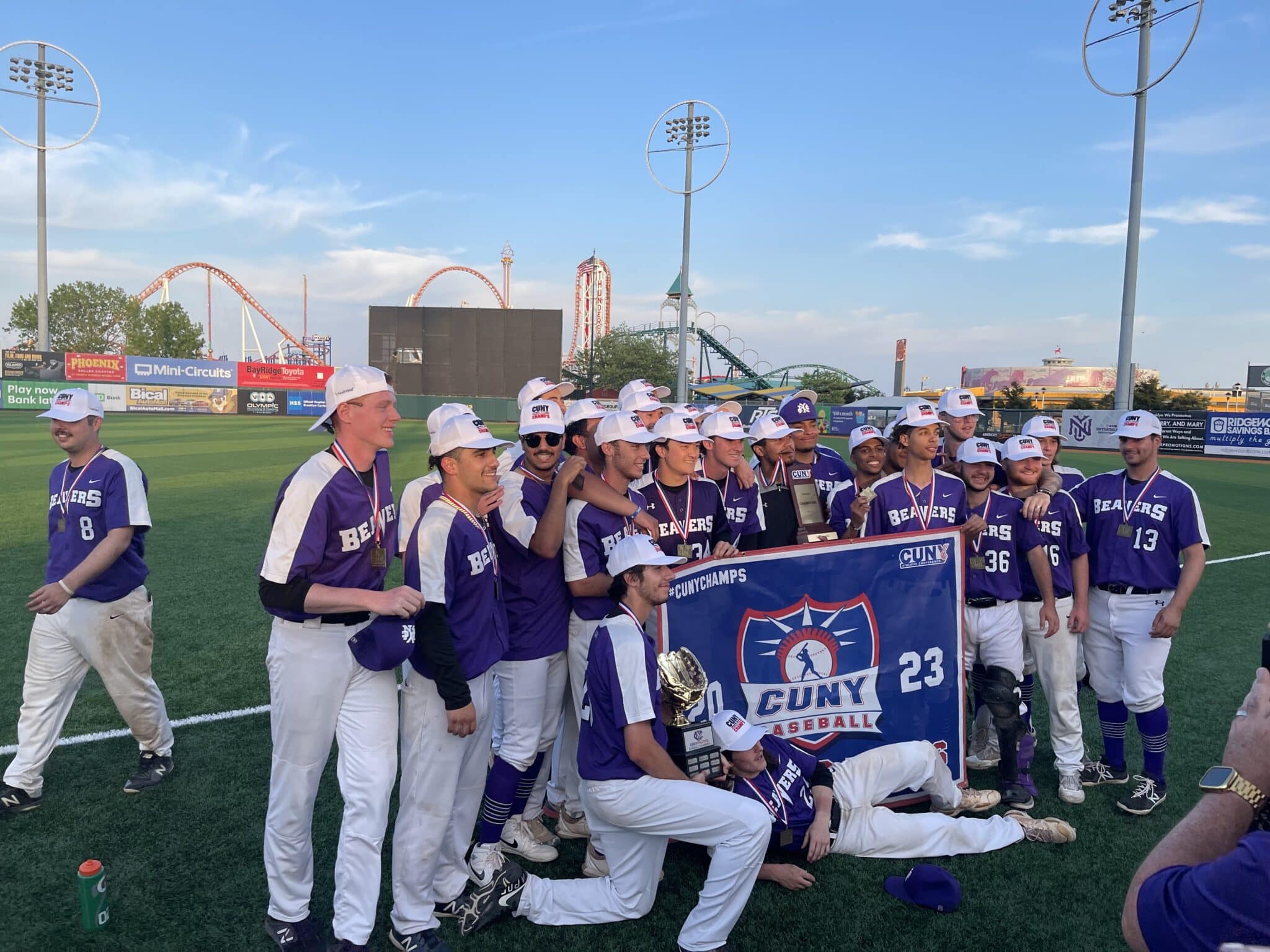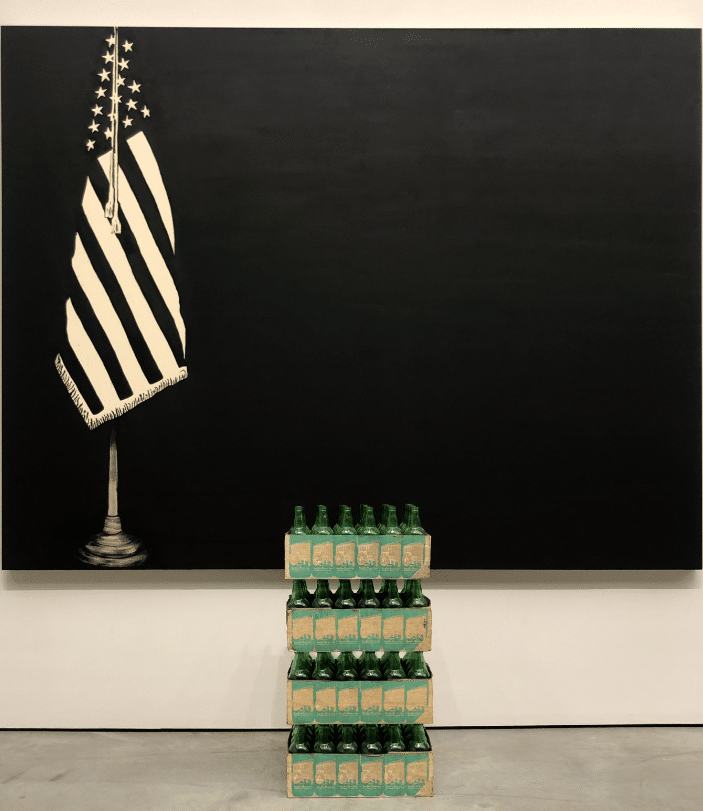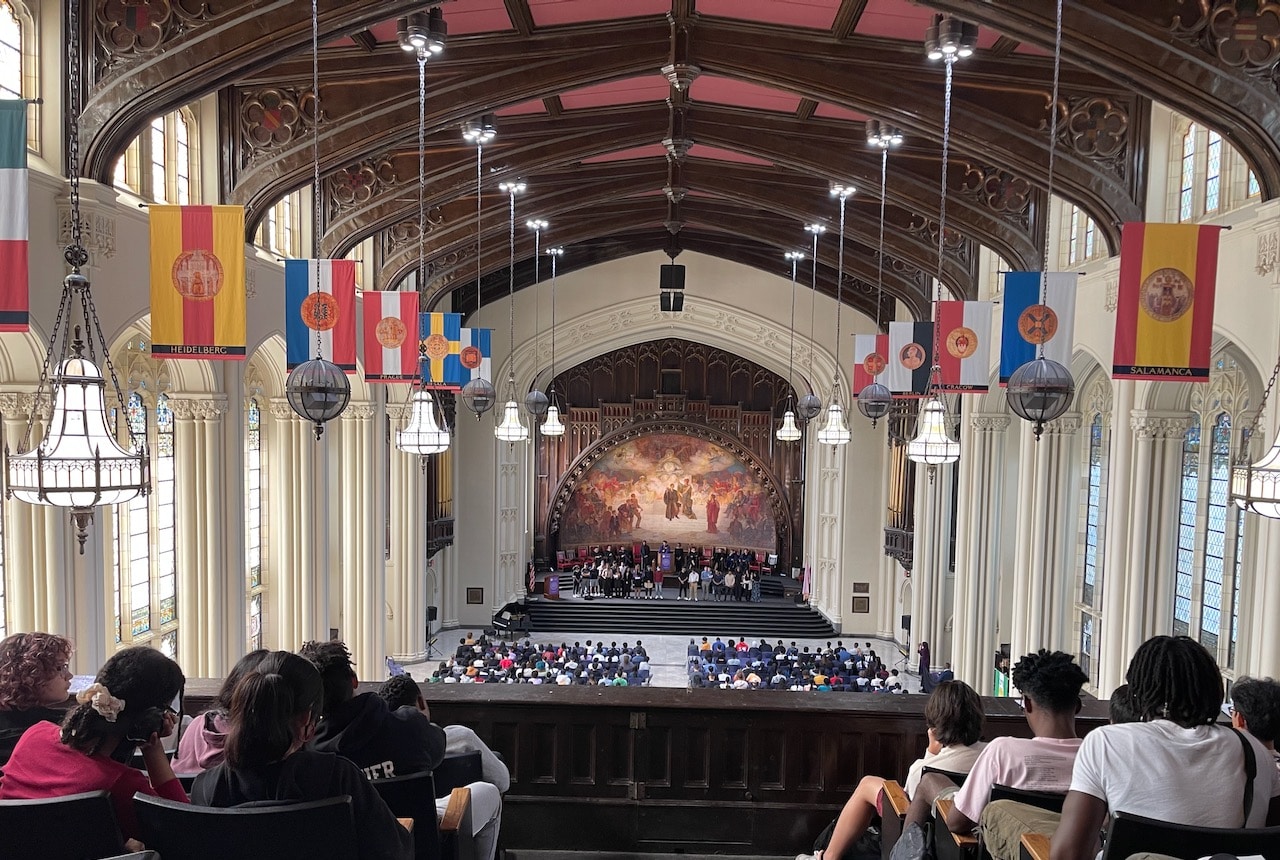Midfielder Yusuf Abdelmegid dribbles toward the goal on October 12, 2024 in a game against York College.
The CCNY Men’s Soccer team has risen to prominence in the CUNY Athletic Conference (CUNYAC), achieving an unbeaten 5-0-2 conference record in 2024 and earning their best finish since 2015. With head coach Roger Gonzalez named CUNYAC Coach of the Year, freshman Yanis Hamdi Pacha honored as “Rookie of the Year” and four players named to the all-star team, the Beavers’ success is undeniable.
However, concerns about potential referee bias within the conference cast a shadow over their achievements, raising questions about fairness and the integrity of collegiate officiating. Carlos Garcia, a goalkeeper and a part-time referee for recreational leagues, articulated what many of us have suspected for years. “During my time here I have always felt that the referees, the people who are supposed to enforce the rules of the game, were against us,” Garcia said. His sentiment is backed by numerous incidents from recent seasons.
It is unacceptable for referees, tasked with ensuring fairness, to perpetuate an environment of unequal treatment. CUNYAC must take immediate action to address these issues and uphold the core values of sportsmanship and equality within the conference.
This season, referees repeatedly targeted our captain, Adonijah Brooks, a smart and intense midfielder who leads by example and has a deep understanding of the game. On September 11, during a match against The College of Mount Saint Vincent, assistant referees persistently pushed for his ejection throughout the game. Then, on October 2, in a match against York College, the pattern continued, with threats of ejection after he calmly questioned a controversial offside call. The issue became even more suspicious during a game against Medgar Evers College on October 12, where referees openly asked about his absence, suggesting a troubling preoccupation with him. Such behavior raises serious concerns about the impartiality of officiating within the conference.
The bias reached its peak during the CUNYAC semi-final against Hunter College on November 2. Referees overwhelmingly favored Hunter, with only a handful of calls going in our favor. In one shocking instance, our goalkeeper was blatantly tackled by a Hunter player who did not attempt to play the ball, yet the refs made no call. Meanwhile, officials turned a blind eye to verbal abuse from Hunter’s coach, including instructions to “break our legs.” Such one-sided officiating not only impacted the outcome of the match but also undermined the integrity of the game itself.
Over the past three seasons, CCNY has faced an average of 78 fouls per season, significantly higher than the CUNYAC conference average of 45 fouls per season, representing a 73% difference. Additionally, CCNY has received an average of 12 yellow cards and 3 red cards per season, compared to the conference averages of 5 yellow cards and 0.8 red cards—a staggering 140% and 275% discrepancy, respectively. These numbers highlight a concerning trend, as CCNY has consistently been among the top three teams in fair play metrics, including possession percentages, minimal off-the-ball incidents, and commendations for sportsmanship. This disproportionate treatment suggests a systemic issue within CUNYAC officiating, where CCNY appears to be unfairly singled out despite its generally clean and competitive play style.
My teammates and I understand that referees face immense pressure and that mistakes are inevitable in the high-stakes college athletic environment. They are responsible for split-second decisions in intense situations, which can sometimes lead to errors that are not intentional. Admittedly, our team is known for being super competitive and playing with fierceness, which, at times, could be misconstrued as overly aggressive or even disrespectful. While we strive to channel this intensity into productive, clean gameplay, we recognize that our passion can sometimes create the perception of conflict, which might influence officiating decisions.
While mistakes are inevitable, the consistency and severity of the bias against CCNY cannot be dismissed as mere errors. Referees are tasked with upholding fairness and impartiality. Repeated targeting of players and lopsided officiating decisions are not accidents but indications of systemic issues. Transparency and accountability mechanisms can minimize these biases.
The CCNY Men’s Soccer team has persevered through these challenges with resilience and integrity, but we can no longer stay silent. We call on CUNYAC to implement stricter accountability measures for referees, including oversight committees and transparent reporting systems. “As student-athletes, we should hold officials to higher standards because if they don’t ensure fairness, then who will?” Carlos Garcia aptly stated.
Fair play is the foundation of sports, and it’s time to uphold this principle for every game, every team, and every athlete. Let’s ensure that the next generation of CCNY players competes on a level playing field, free from the biases that have plagued us for too long.
Tags: accountabilty Adonijah Brooks Beavers Carlos Garcia CCNY Men's Soccer CUNY Athletic Conference CUNYAC equal treatment Fair Play fairness Mikhael Torres referees Roger Gonzalez Yanis Hamdi Pacha
Series: Community






